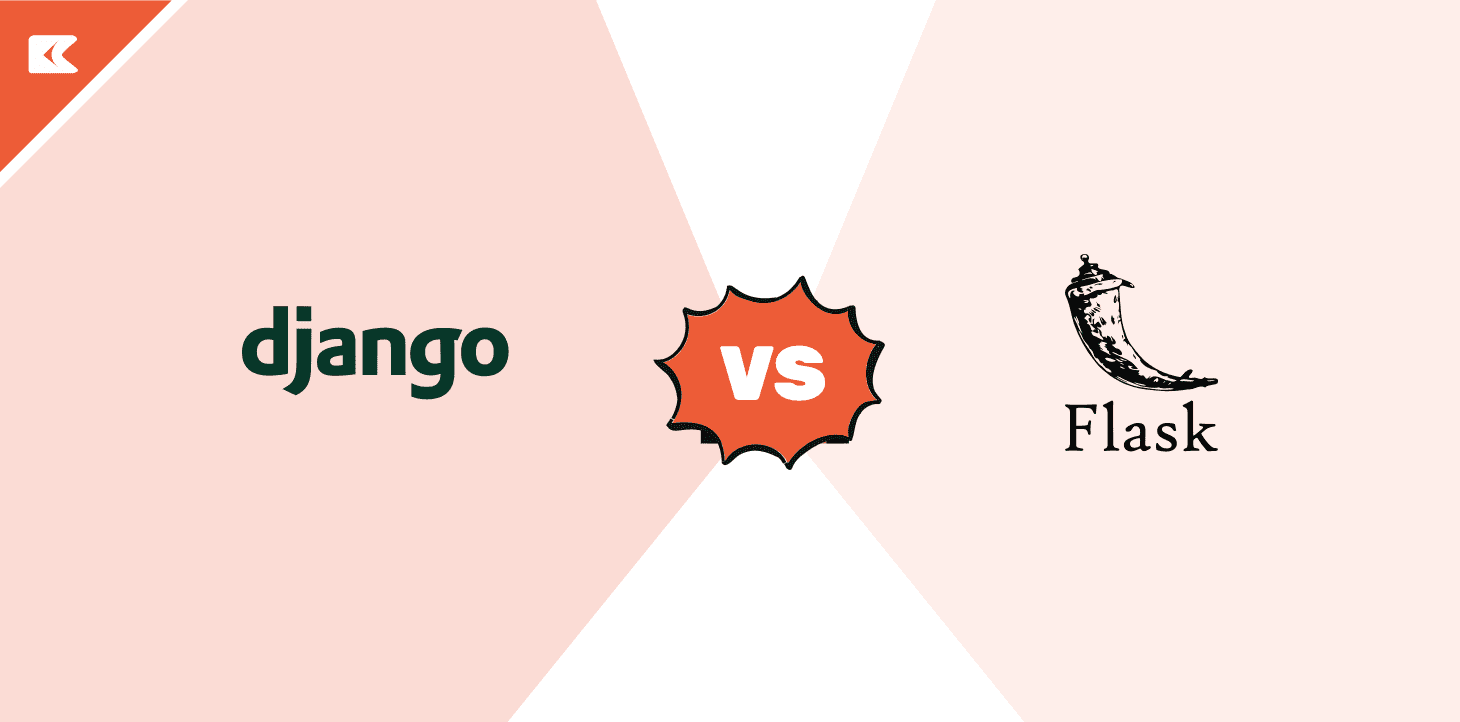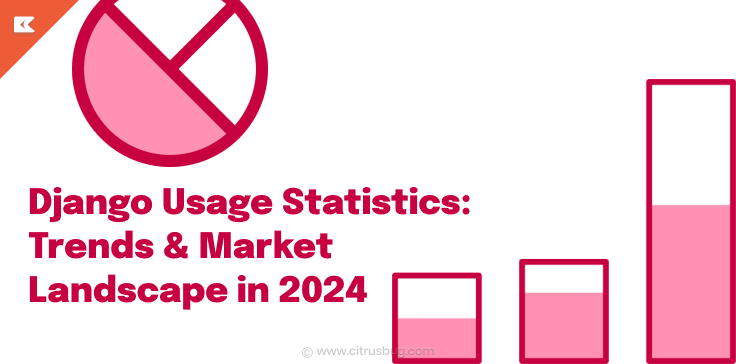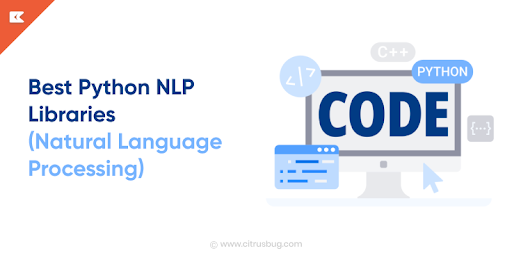Django vs Flask in 2025: Battle of Backend Web Development
- November 22, 2021
-
3988 Views
- by Ishan Vyas
You can not just go with the hit and trial method when it comes to choosing the right backend web development framework for your software project. Apparently, there are way too many factors such as the size of the project, performance data, productivity, project constraints, etc. that decides the adequacy of the framework you must select for the project.
There are a plethora of web frameworks to pick when we consider Python as a server-side programming language. However, Django and Flask are certainly two of the most popular Python web frameworks among the developers.
Django is an open-source and free web development framework that works on a Model–Template–View pattern. The primary focus of the framework is on less code, reusable components, and faster development. Whereas Flask, being a microframework, gives more attention to the flexibility and lightness of the project. It uses a variety of extensible customisable structures to make the project simplistic and feature-rich.
What Makes Django Different from Flask?
Django is a Python-based full-stack web framework that includes a high range of integrated and ready-to-use solutions. On the contrary, Flask is a lightweight and extensible Python web framework that includes all basic features in its framework and provides an abundance of optional features as extensions.
What sets Django apart from Flask is the use of data models in its framework. Django has its own object-relational mapping that allows the developers to link database libraries and tables with classes. It makes it easier for the developers to work with the models used in the project. The extensive built-in features of Django contribute to its widespread adoption and high usage statistics among developers, who value its robust, all-in-one approach.
Working of Django Framework
Source: Developer.mozilla.org
Flask, on the other hand, follows a modular approach and does not provide an inclusive ORM (Object Relational Mapping). A developer can use models through outsourced extensions and libraries.
Working of Flask Framework
Source: Stackoverflow.com
Where Django and Flask is suitable & popular brands using it?
Django is usually a better-suited option for larger enterprise projects. Django is a great fit for projects that need a small start but requires scaling up at later stages. The framework of Django is extremely supportive and provides good flexibility when the app needs exponential growth over time.
Some of the major projects built with Django are Instagram, Spotify, Dropbox, Pinterest etc.
Talking about Flask, its use is more advisable when you have to make more technological decisions along with the progress of the project. As the libraries are all extended, it becomes easier to link up with external data with convenience as opposed to that of Django.
Flask can be of huge benefit for the following instances:
- Experimentation with the libraries, architecture, and latest technologies.
- Addition of various disparate and small features.
- Embedding of multiple highly specialized microservices.
These are a few popular websites that are created using the Flask framework: Airbnb, Rackspace, Netflix, Reddit, etc.
Feature-Based Comparison of Django Vs Flask
Django is an excellent web application framework that comprises many standard functionalities to build safe and maintainable websites. Being open-source, it has a wide community that keeps its framework updated to the current needs of the market. Flask, on the opposite end, also has most of the standard functionalities. Furthermore, it has the capability of adding external plugins and libraries as per the client’s requirements.
Which One Has the Better Performance: Django or Flask?
Honestly, it is very hard to pick one over another as both frameworks perform extremely well in their areas. Additionally, both have the capability to use specialized libraries or tools for boosting their performance.
However, on breaking the comparison on the basis of higher overall framework performance Vs faster delivery of comprehensive features, Flask seems to perform a little better because of its light size and fewer layers. This does not make Django any lesser as there is no competition with Django when it comes to delivering a complete project with more complex features.
Final Thoughts
Confused about which framework to choose for your web application project in battle of Django vs Flask? Well, as we have learned, both the frameworks work exceptionally well in developing web applications. So picking a framework majorly depends upon the kind of web app you are interested in developing.
If it is a medium-sized app like forums, personal blogs, or small scale enterprise app, go for Flask. If you require a large scale app such as CMS or eCom website, Django can be your partner in crime. And Citrusbug’s expert Python developers have honed their skills in both the frameworks. Reach out to us for your tech-stack consultation and to hire a Django or Flask developer.





 SaaS Development
SaaS Development Web Application Development
Web Application Development Mobile Application Development
Mobile Application Development Custom Software Development
Custom Software Development Cloud Development
Cloud Development DevOps Development
DevOps Development MVP Development
MVP Development Digital Product Development
Digital Product Development Hire Chatbot Developers
Hire Chatbot Developers Hire Python Developers
Hire Python Developers Hire Django Developers
Hire Django Developers Hire ReactJS Developers
Hire ReactJS Developers Hire AngularJS Developers
Hire AngularJS Developers Hire VueJS Developers
Hire VueJS Developers Hire Full Stack Developers
Hire Full Stack Developers Hire Back End Developers
Hire Back End Developers Hire Front End Developers
Hire Front End Developers AI Healthcare Software Development & Consulting
AI Healthcare Software Development & Consulting Healthcare App Development
Healthcare App Development EHR Software Development
EHR Software Development Healthcare AI Chatbot Development
Healthcare AI Chatbot Development Telemedicine App Development Company
Telemedicine App Development Company Medical Billing Software Development
Medical Billing Software Development Fitness App Development
Fitness App Development RPM Software Development
RPM Software Development Medicine Delivery App Development
Medicine Delivery App Development Medical Device Software Development
Medical Device Software Development Patient Engagement Software Solutions
Patient Engagement Software Solutions Mental Health App Development
Mental Health App Development Healthcare IT Consulting
Healthcare IT Consulting Healthcare CRM Software Development
Healthcare CRM Software Development Healthcare IT Managed Services
Healthcare IT Managed Services Healthcare Software Testing services
Healthcare Software Testing services Medical Practice Management Software
Medical Practice Management Software Outsourcing Healthcare IT Services
Outsourcing Healthcare IT Services IoT Solutions for Healthcare
IoT Solutions for Healthcare Medical Image Analysis Software Development Services
Medical Image Analysis Software Development Services Lending Software Development Services
Lending Software Development Services Payment Gateway Software Development
Payment Gateway Software Development Accounting Software Development
Accounting Software Development AI-Driven Banking App Development
AI-Driven Banking App Development Insurance Software Development
Insurance Software Development Finance Software Development
Finance Software Development Loan Management Software Development
Loan Management Software Development Decentralized Finance Development Services
Decentralized Finance Development Services eWallet App Development
eWallet App Development Payment App Development
Payment App Development Money Transfer App Development
Money Transfer App Development Mortgage Software Development
Mortgage Software Development Insurance Fraud Detection Software Development
Insurance Fraud Detection Software Development Wealth Management Software Development
Wealth Management Software Development Cryptocurrency Exchange Platform Development
Cryptocurrency Exchange Platform Development Neobank App Development
Neobank App Development Stock Trading App Development
Stock Trading App Development AML software Development
AML software Development Web3 Wallet Development
Web3 Wallet Development Robo-Advisor App Development
Robo-Advisor App Development Supply Chain Management Software Development
Supply Chain Management Software Development Fleet Management Software Development
Fleet Management Software Development Warehouse Management Software Development
Warehouse Management Software Development LMS Development
LMS Development Education App Development
Education App Development Inventory Management Software Development
Inventory Management Software Development Property Management Software Development
Property Management Software Development Real Estate CRM Software Development
Real Estate CRM Software Development Real Estate Document Management Software
Real Estate Document Management Software Construction App Development
Construction App Development Construction ERP Software Development
Construction ERP Software Development







![How to Build an Image-to-Text Converter Using Python? [A Simple Guide for Developers] How to Build an Image-to-Text Converter Using Python? [A Simple Guide for Developers]](https://citrusbug.com/wp-content/uploads/How-to-Build-an-Image-to-Text-Converter-Using-Python_-A-Simple-Guide-for-Developers-1.png)

